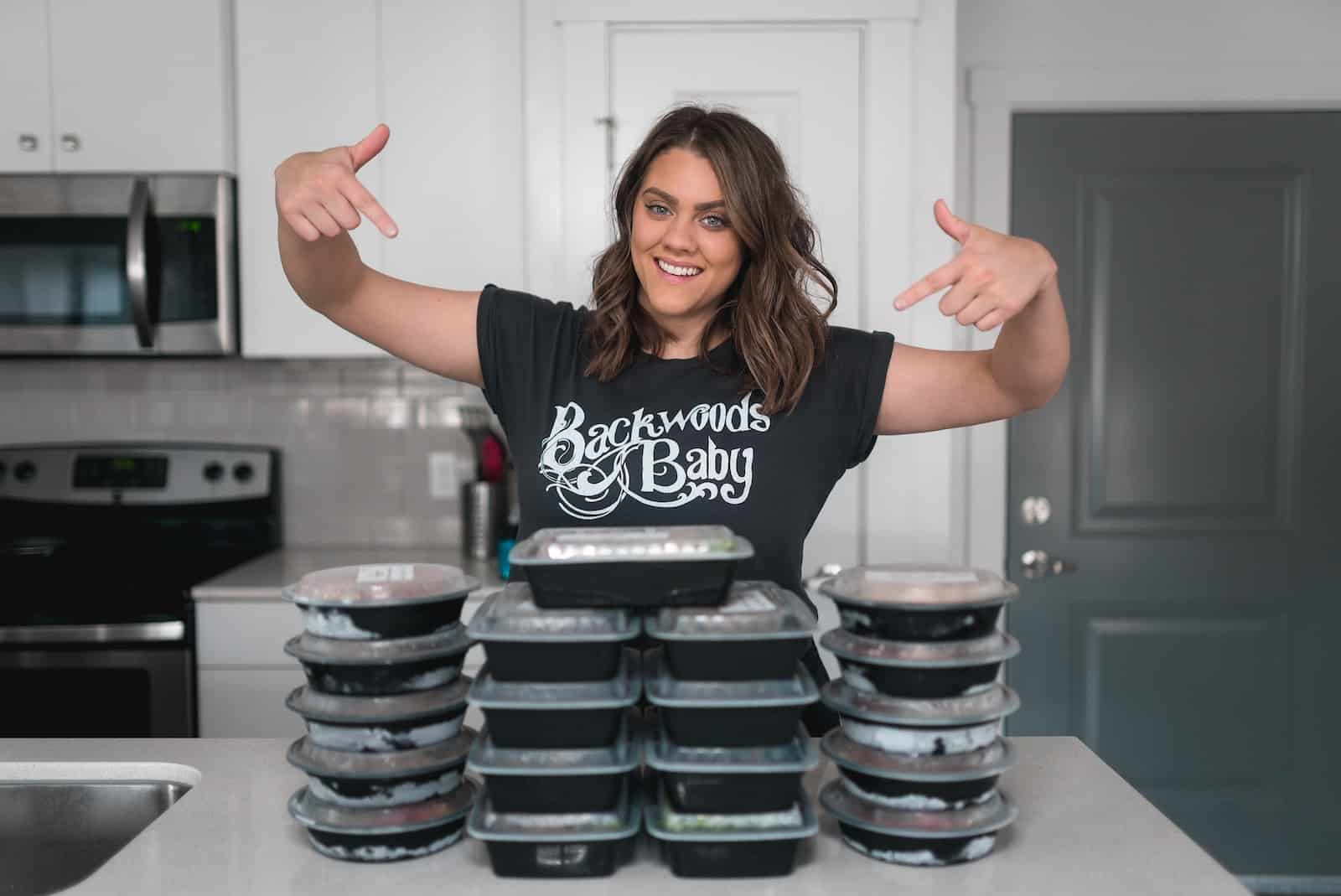What are the best strategies for meal prepping?

 |
November 27, 2023
|
November 27, 2023
Meal prepping has become a significant trend in the culinary world, transforming how people manage their food and time. It’s a handy technique for those seeking a better, healthier lifestyle or looking to save time and money. However, to ensure that you’re maximizing your meal prep benefits, you need to have effective strategies. Today, we’ll share the best strategies for meal prepping that will make your cooking more efficient and enjoyable.
Understanding What Meal Prepping is and Why it’s Beneficial
Before delving into the strategies, it’s crucial to understand what meal prepping entails and why it’s a beneficial habit to adopt. Meal prepping is the act of planning, preparing, and packaging your meals in advance. This approach to cooking can range from prepping lunches for the week ahead, to making dinner ingredients ready for quick assembly.
Avez-vous vu cela : What are the best tips for making homemade jams?
Implementing meal prepping can significantly impact your life. It can help you manage your dietary needs more effectively, save time during busy weekdays, and even reduce the stress linked with the persistent question of "what’s for dinner?" Plus, it can be a fun and rewarding process once you get the hang of it.
Planning Your Meals
The first and arguably most critical step in meal prepping is planning. Having a solid plan for the week’s meals ensures that you don’t waste time and ingredients. But how do you go about this?
Avez-vous vu cela : How to bake with alternative sugars and flours?
Start by determining the number of meals you’ll need to prepare for the week. Take into account your schedule, dietary needs, and personal preferences. Then, choose recipes that fit your lifestyle and cooking skills. Opt for recipes that you can easily batch-cook, freeze, or repurpose. You can also choose recipes that share ingredients to save money and reduce waste.
Selecting the Right Ingredients
After planning, the next step is selecting the right ingredients. Choosing quality, fresh, and versatile ingredients will greatly influence the success of your meal prepping.
When shopping for ingredients, focus on whole foods. These are unprocessed, nutrient-dense foods that are not only healthy but also filling. Consider fruits, vegetables, lean proteins, whole grains, and healthy fats. These ingredients can be used in a variety of recipes, giving you flexibility in your meal plan.
Remember to check your pantry before shopping. You might already have some ingredients on hand, and you don’t want to overbuy!
Efficient Cooking Techniques
Now that you’ve planned your meals and shopped for ingredients, it’s time to get cooking. The cooking methods you choose should align with your meal plan and recipe choices.
Batch cooking is a popular method in meal prepping where you make large quantities of a particular dish, which you can then divide into portions for the week. This method is time-efficient and reduces the amount of cleaning you’ll have to do.
Another effective cooking technique is one-pot or pan meals. These recipes require minimal clean-up, and you can often incorporate all your ingredients at once.
Finally, consider using appliances like slow-cookers, instant pots, or air fryers. These can be set and left alone, freeing up your time for other tasks.
Storing Your Prepped Meals
Properly storing your prepped meals is key to maintaining their freshness and taste. Investing in good quality containers is a must. Opt for containers that are durable, microwave-safe, and BPA-free. Glass containers are an excellent choice as they don’t stain or hold onto smells.
When storing your meals, make sure they’re properly cooled before putting them in the fridge or freezer to prevent bacterial growth. For best taste, consume refrigerated meals within 3-4 days and frozen meals within 3 months.
Making Meal Prepping Easy and Enjoyable
Meal prepping doesn’t have to be a chore. There are several ways to make the process easier and more enjoyable.
Firstly, try to find a routine that works best for you. Some people prefer to prep all their meals on one day, while others like to spread the task over two days. Secondly, listen to music, podcasts, or audiobooks while you cook to make the time go faster. Lastly, get your family or roommates involved. Not only can this speed up the process, but it can also be a great bonding activity.
Remember, meal prep is meant to simplify your life, not complicate it. So, don’t stress if everything doesn’t go according to plan. With the right strategies, meal prep will become a rewarding habit that enhances your lifestyle.
Incorporating Variety into Your Meal Plan
In the journey of meal prepping, one of the biggest pitfalls could be monotony. Eating the same meals repeatedly can lead to boredom and might make you abandon meal prepping altogether. Hence, variety is a crucial element in successful meal prepping.
Integrating variety into your meal planning isn’t as difficult as it might seem. Start by varying your protein sources. This could mean alternating between chicken, fish, tofu, eggs, or lentils throughout the week. This not only ensures a varied taste but also provides a balanced intake of nutrients.
Next, experiment with different cooking methods. You could bake, grill, steam, or stir-fry your food. If you have a slow cooker or an instant pot, you could make soups, stews, or casseroles. These appliances are perfect for batch cooking, saving you time and effort.
Incorporate a rainbow of fruits and vegetables in your meals. Each color corresponds to different nutrients and antioxidants, making your meals healthier and more visually appealing.
Grains are also an area where you can mix things up. Alternate between rice, quinoa, pasta, or couscous. If you’re following a gluten-free diet, there are plenty of options like millet, buckwheat, or gluten-free oats.
Lastly, play with flavors. Don’t hesitate to explore various herbs, spices, dressings, or sauces. This will greatly enhance the taste of your meals, making each day’s meal exciting and different.
Saving Money with Meal Prepping
One of the many benefits of meal prepping is the potential for saving money. Planning your meals for the week and shopping accordingly helps you avoid impulsive buys or expensive last-minute take-outs.
To save money, start by creating a detailed shopping list based on your weekly meal plan. Stick to your list when you’re at the grocery store to avoid unnecessary purchases.
Bulk buying can also lead to significant savings. Staples like rice, pasta, lentils, or oats can be bought in larger quantities. However, ensure that you have adequate storage and usage plans for these bulk purchases to avoid wastage.
Choosing seasonal produce is another excellent way to cut costs. Seasonal fruits and vegetables are often cheaper and fresher. Plus, it’s a great way to add variety to your meals.
Sales and discounts can also help save money. Keep an eye out for these while shopping. You could also consider buying store-brand items, which are often cheaper than name-brand ones.
Conclusion
Meal prepping is undoubtedly a great way to save time, manage dietary needs, and even save money. However, it requires a certain level of planning and commitment. By understanding what meal prepping is, planning your meals, selecting the right ingredients, cooking efficiently, storing your meals properly, making the process enjoyable, incorporating variety, and being savvy with your shopping, you can master the art of meal prepping.
Remember, the best meal prep is the one that fits your lifestyle and preferences. Whether you’re a fan of batch cooking or prefer pot meals, whether you use prep bowls or prep containers, the key is to find what works best for you. It may take some trial and error, but once you find your rhythm, meal prepping can become a rewarding and beneficial part of your routine.
